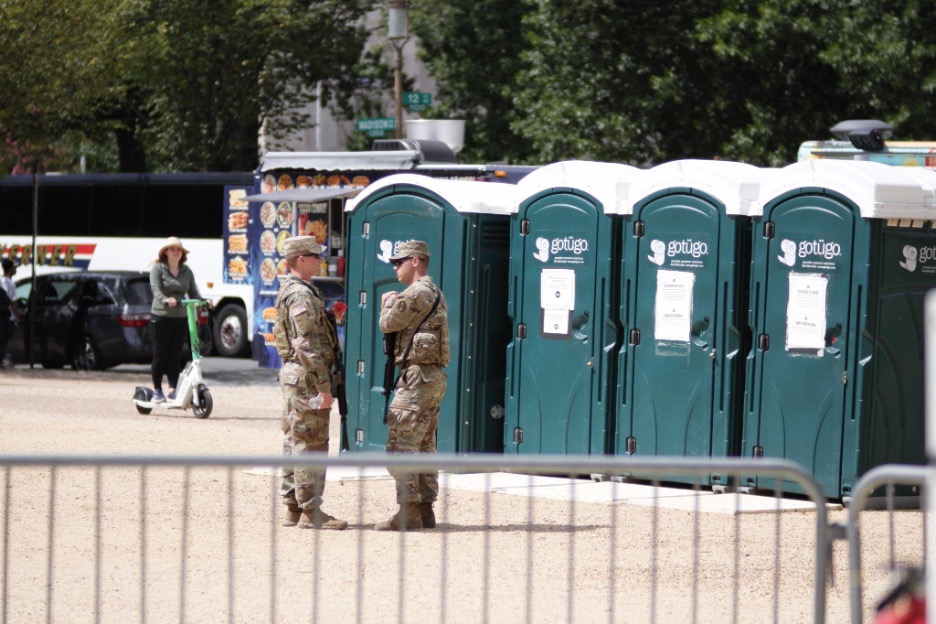Today's Headlines and Commentary
Lots more on the foiled bomb plot after news broke yesterday that the suicide bomber was our kind of terrorist--more interested in ratting out Al Qaeda than blowing himself up. Assuming the New York Times, the Washington Post, and the
}
Published by The Lawfare Institute
in Cooperation With

Lots more on the foiled bomb plot after news broke yesterday that the suicide bomber was our kind of terrorist--more interested in ratting out Al Qaeda than blowing himself up. Assuming the New York Times, the Washington Post, and the Associated Press are accurate, we raise the Cup of Lawfare to him! Perhaps AQAP's third failed bomb plot in three years is a sign that it needs to get out of the bombing business altogether.
Meanwhile, as John Bellinger wrote last night, the Washington Post editorial board gave its enthusiastic nod of approval to the President's use of drones in Yemen. The Boston Globe's editorial board describes the nature of future Al Qaeda threats, and argues that
The revelation that US agents infiltrated an Al Qaeda cell, and that a double agent had handed over the newly created bomb and provided the information necessary to kill the cell’s external operations director, is a breathtaking triumph of counterterrorism. It was also proof that the strategies necessary to prevent such attacks--intelligence-gathering, cooperation with foreign governments, and clandestine missions to capture or kill terrorists--are quite different than those of the “war on terror” under which this nation has lived for many years.Long War Journal tells us that "[t]wo of the 17 documents released by the US government from the large cache seized during the raid on Osama bin Laden's compound indicate that al Qaeda has a much larger footprint in Pakistan than US officials have claimed." Greeeaaaat! Bruce Hoffman of the Woodrow Wilson Center and Georgetown's Security Studies Program has this informative piece in the Wall Street Journal about what the 17 documents from the Abbottabad raid tell us. He says that "the picture that emerges. . . is of a leader involved in both al Qaeda's day-to-day operations and long-term strategy." In addition,
Perhaps the most notable communication . . . is one dated Aug. 27, 2010. In it, bin Laden fears for the safety of his fighters and followers in Pakistan—not because they might be arrested or detained by the authorities, but because torrential rains and flooding were then afflicting that country. This is astonishing. Bin Laden was more fearful that his men might be affected by the weather than by any effort of the Pakistani government to apprehend them. This assertion alone speaks volumes about how comfortable he and his minions found their refuge there. There is little in the documents that suggests it was terribly difficult for al Qaeda fighters to travel from Iran to Pakistan—or, for that matter, between Afghanistan and Pakistan. And there's no indication that, once in Pakistan, they had any trouble traversing Baluchistan en route to the Federally Administered Tribal Areas or North-West Frontier Province, two of the movement's favorite haunts.In case you've been holding your breath for those U.S.-Taliban talks: The Post reports (surprise!) that they've been stalled for months. Although the President said negotiations with insurgents were ongoing in his Kabul speech last week, the Post says "senior administration officials acknowledged that there have been no meetings with Taliban interlocutors since January." Speaking of the President's Kabul visit, Afghan President Karzai says that civilian deaths resulting from U.S. airstrikes "could undermine the cooperation agreement he just signed with the U.S." The Associated Press has the story--and also notes that "[t]he Taliban kill more civilians than foreign forces." Scott Horton over at Harpers writes about the need to "end secretive operations in Pakistan" and force "Pakistani leaders to bear the consequences of their unpopular decisions." The Times has this editorial arguing that the Supreme Court "should promptly reverse" the Latif decision, which "eviscerates the justices’ 2008 ruling in Boumediene v. Bush that allowed Guantánamo prisoners to challenge the legality of their detention in federal court through habeas corpus petitions." No, Ben says he's not going to write a snarky piece about it. And, for those of us concerned about privacy, Google's new opt-out policy is the answer to our prayers--and today's Moment of Zen.
Ritika Singh was a project coordinator at the Brookings Institution where she focused on national security law and policy. She graduated with majors in International Affairs and Government from Skidmore College in 2011, and wrote her thesis on Russia’s energy agenda in Europe and its strategic implications for America.
More Articles
-

Why Gaza’s Aid Effort Will Fail Without Cash
Israel’s economic warfare and the hidden monetary and financial roots of Palestine’s humanitarian crisis. -

Lawfare Live: Trials of the Trump Administration, Dec. 19
Join the Lawfare team at 4 pm ET for a discussion of the litigation targeting actions from President Trump. -

When AI Models Can Continually Learn, Will Our Regulations Be Able to Keep Up?
Regulation has already been hard enough for static AI models.



-(1).png?sfvrsn=dd820f87_5)
